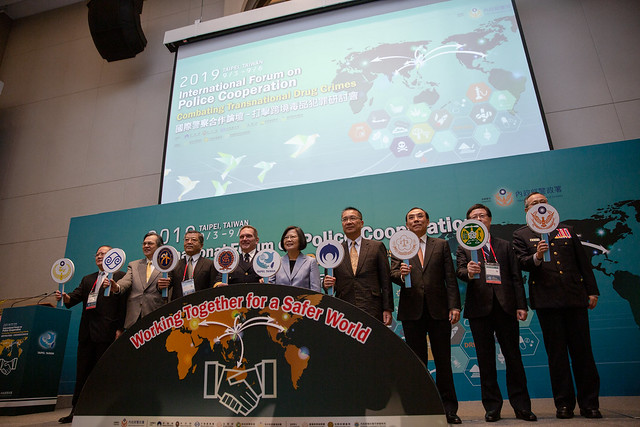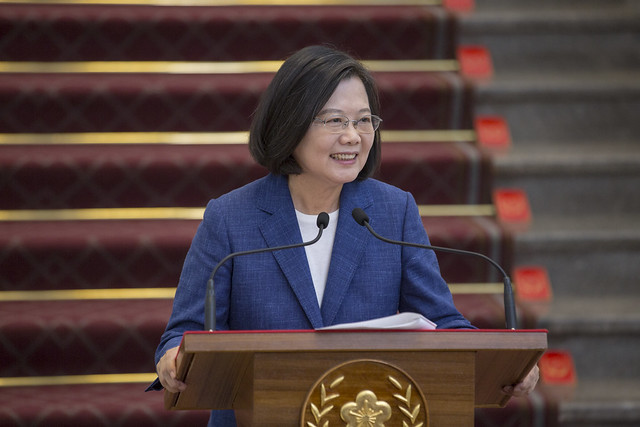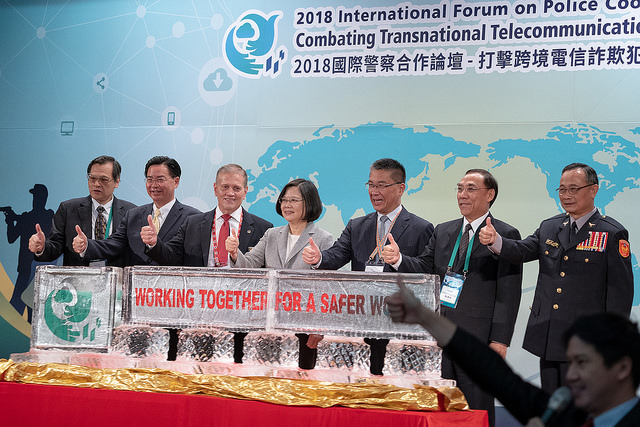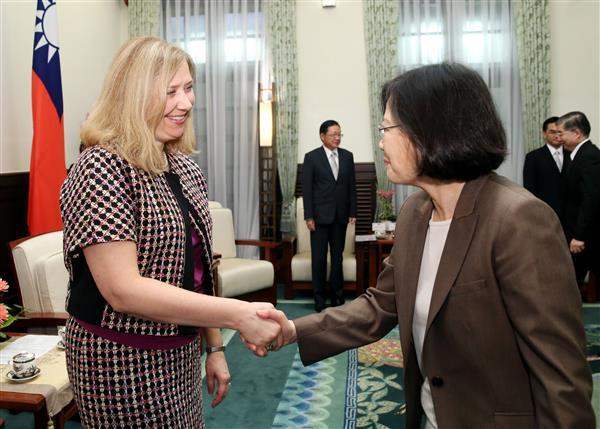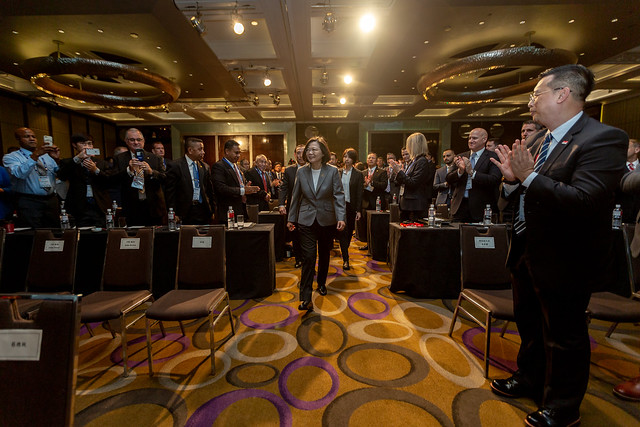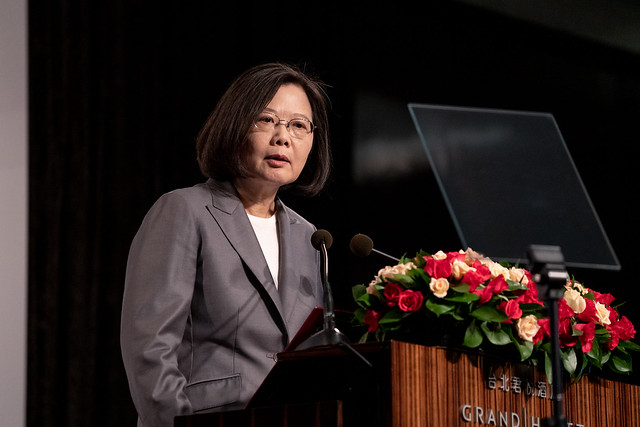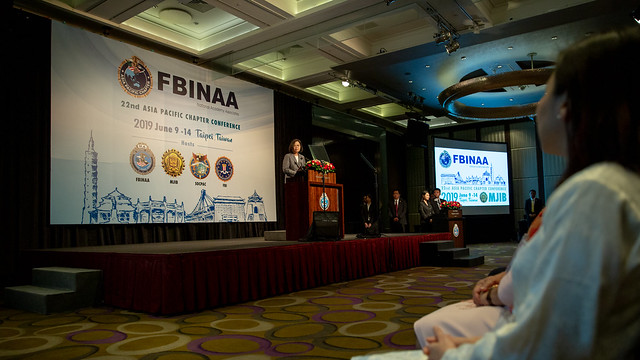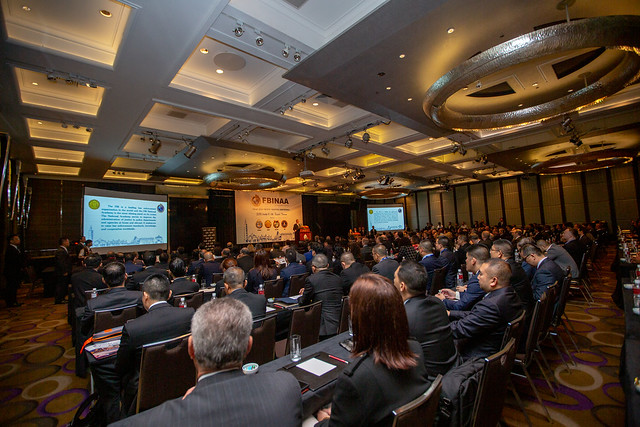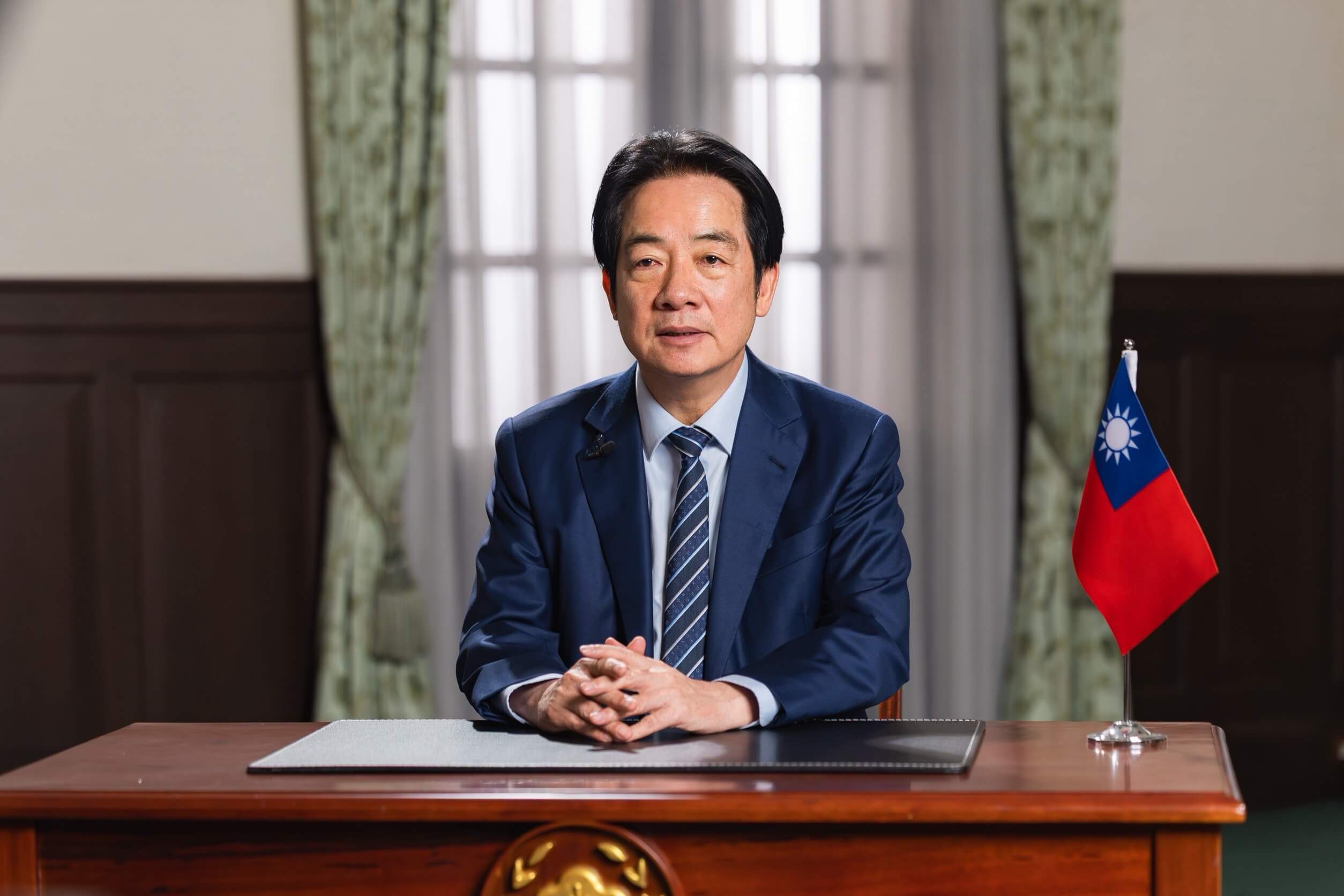News & activities
 News releases
News releases
President Tsai Ing-wen attended the opening ceremony of the 22nd Asia Pacific Chapter Retraining Conference of the US Federal Bureau of Investigation National Academy Associates (FBINAA) on the morning of June 10. She stated that Taiwan is a reliable partner, and a force for good in the world. We are determined to do our part to combat international crime, she said, because Taiwan is an irreplaceable part of global law enforcement endeavors.
A transcript of the president's remarks follows:
It is a pleasure to welcome you all to the 22nd FBI National Academy Associates Asia Pacific Retraining Conference. We are hosting this event in Taiwan for the first time. So I want to thank our Ministry of Justice Investigation Bureau for all their hard work in preparing and hosting this conference.
I also want to honor our FBI National Academy graduates in the Ministry of Justice Investigation Bureau and National Police Agency here today. You are a testament to Taiwan's importance in the international law enforcement community, and the pride of Taiwan.
Taiwan is the heart of the Indo-Pacific region, and we are a major travel and trade hub. Our unique location and strong law enforcement capabilities make us a key link in the prevention of transnational crime.
Taiwan is committed to achieving a free and open Indo-Pacific. We are working with like-minded partners throughout the region to find ways to make our region a safer, more prosperous place. And your presence here in Taiwan is a testament to this effort.
We are also expanding our law enforcement networks. We have signed MOUs and agreements with countries such as the United States, the Philippines, Nauru, and Palau. Our intelligence sharing networks stretch across East and Southeast Asia. And Taiwan has long worked with the United States to combat global terrorism.
Respect for the rule of law is a universal value. And fighting transnational crime requires multinational cooperation. I want you all to know that Taiwan is a reliable partner, and a force for good in the world.
We are determined to do our part to combat international crime. Because Taiwan is an irreplaceable part of global law enforcement endeavors.
I trust that your discussions over the coming days will inspire new ideas and new opportunities for cooperation. I'm sure there will also be much reminiscing about your days at the Academy.
At the same time, I hope you will take the opportunity to explore Taiwan, and see what makes our country so unique. Take a hike in the mountains surrounding Taipei, and don't be afraid to try the local cuisine.
Most importantly, I hope you bring what you see and learn here back to your own countries. Because each time we share knowledge and information, we help bring justice to more people who need it.
I wish you all a successful conference, and a pleasant stay in Taiwan. Thank you.
Attendees included Minister of Justice Tsai Ching-hsiang (蔡清祥); Director-General Leu Weng-Jong (呂文忠) of the Investigation Bureau, Ministry of Justice; Director-General Chen Ja-chin (陳家欽) of the National Police Agency, Ministry of the Interior; Director-General Chiu Feng-kuang (邱豐光) of the National Immigration Agency, Ministry of the Interior; US FBI Associate Deputy Director Paul Abbate; FBINAA President Kevin Wingerson; FBINAA Asia Pacific Chapter President Shaw-Nan (Steve) Chou (周紹南); and American Institute in Taiwan Taipei Office Deputy Director Raymond Greene.
